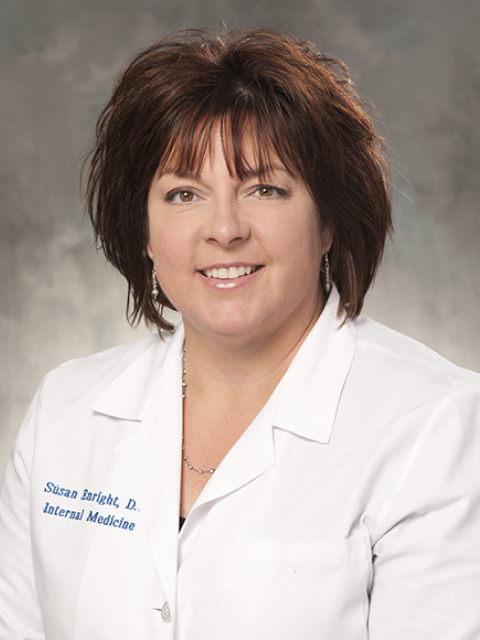
What Every Clinician Should Know About AI in 2025
by Susan M. Enright, DO, MACOI
ACOI President
August 4, 2025
You may recall my December “Letter from Our President” where I recruited the assistance of Virginia Irwin-Scott, DO, MBA, CPE, FASN, FACOI, to provide an overview of AI in healthcare. I received many positive comments and as AI is here and changing quickly, I asked Dr. Irwin-Scott to provide another overview/update. Thank you, Dr. Irwin-Scott!
What Every Clinician Should Know About AI in 2025
Whether you have dabbled with ChatGPT out of curiosity or watched your EHR move towards ambient listening to facilitate note completion, one thing to be sure of is that AI is still “not coming” or “on the horizon.” It is here. For internists or specialists, especially those in value-based care, the shift is not theoretical. It is practical.
AI policy is evolving rapidly. Staying informed about PPI and HIPAA requirements are essential when interacting with large language models or any of the associated technology. Many tools claim not to "store" information, but may use inputs for model enhancement—therefore, it is important to carefully review the terms and conditions of any model in use.
What is AI really doing in our clinics, offices, practices?
- Documentation and Ambient Scribing:
- Tools like Nuance DAX and Abridge record patient visits and generate structured notes in real time, which frees up time for clinicians to listen and engage during patient visits.
- Predictive Analytics:
- AI tools can assess which patients are at risk for readmission, help identify open gaps in care, or recommend actions that could help prevent downstream risks and poor outcomes.
- Clinical Decision Support:
- Platforms that use natural language processing and large language models can guide clinicians through complex cases and care management, which helps improves diagnostic accuracy.
- Population Health:
- AI’s algorithms can help identify which patients are overdue for screening or need updated vaccinations. They can also alert clinicians about coding issues, such as a lack of proper documentation.
Although not yet perfect, these AI tools are increasing physician efficiency. Embracing AI is essential, as physicians who adapt will outpace those who resist it. Fully utilized, AI can empower primary care providers, reduce referrals, and enhance patient outcomes and satisfaction.
Data scientists play a key role in selecting data and training models. Their collaboration with physicians is expected to strengthen over time. When implementing AI algorithms, it is crucial to ensure they are explainable and understandable, as the foundational data affects results. Tools like ChatGPT may yield inaccurate diagnoses due to training data limitations. Clearly defining data scientists' responsibilities within an organization or with partners is essential for effective outcomes.
ACOI members have a prime opportunity to engage students, residents, and fellows about AI, as many are already using self-developed tools. Provide a structured, safe space for tech exploration and they will shape future solutions. Look for opportunities to incorporate AI into quality initiatives; for example, I see early CKD intervention as a key benefit. Everyone will find their own best use case. Collaborate across specialties and avoid siloing AI, as its cross-disciplinary application is crucial for improving disease outcomes.
The speed at which AI technology is transforming diagnostics is remarkable. In June 2025, Microsoft revealed that its newest model, MAI – Dx0, reached 80% diagnostic accuracy, far surpassing the 20% benchmark for human doctors, while also cutting costs by 20%. MAI – Dx0 leverages an ensemble of leading AI models, enabling it to replicate expert panel decision-making (Wired, Will Knight, June 30, 2025). Just months earlier, a Nature article (McDuff, April 9, 2025) reported similar leaps in diagnostic capability but not achieving the 80% accuracy. As research rapidly evolves, it's crucial for clinicians to remain alert and engaged with how these powerful technologies are being integrated into healthcare.

